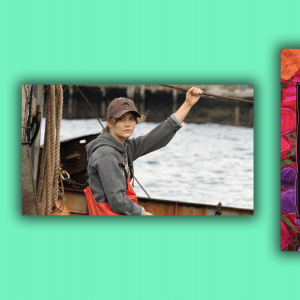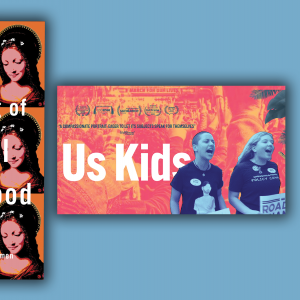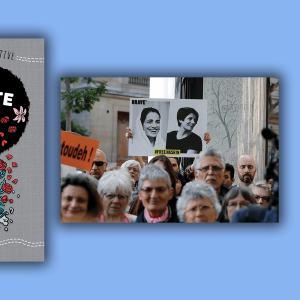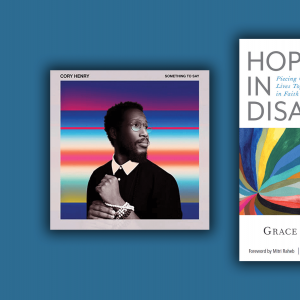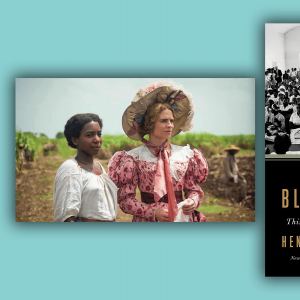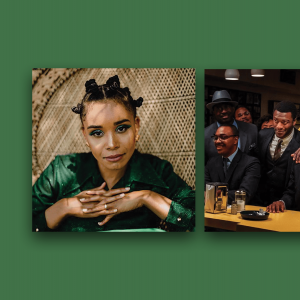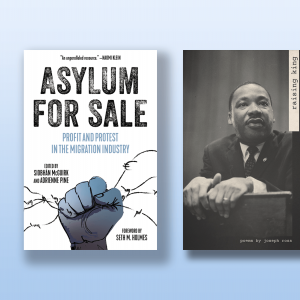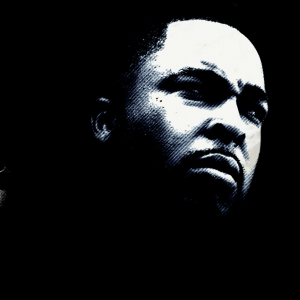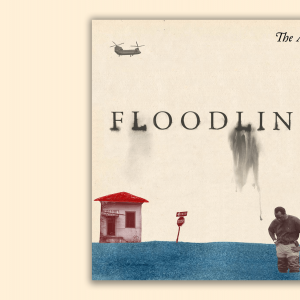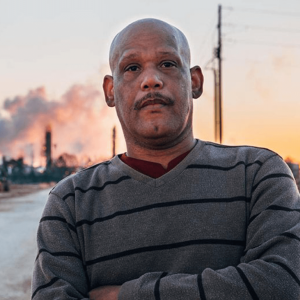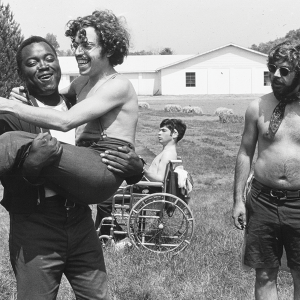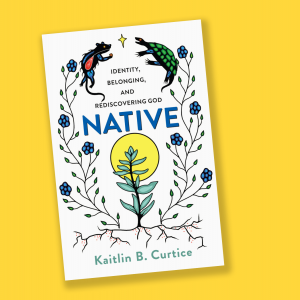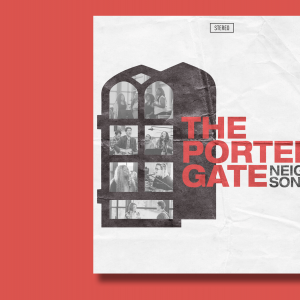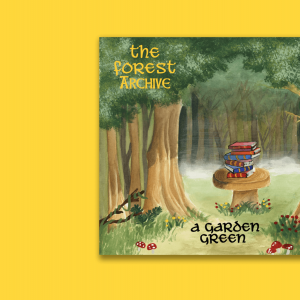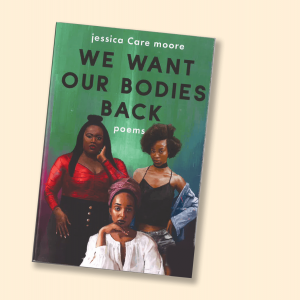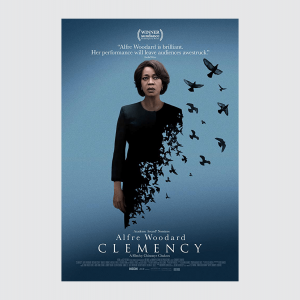Posts By This Author
New & Noteworthy: Sexuality, Grandmothers, and More
Three culture recommendations from our editors.
Ruby's Refrain
Siân Heder’s heartwarming feature film Coda captures the love and struggles of a deaf household and their family business. As a CODA (child of deaf adults) and the only hearing person in her family of four, 17-year-old Ruby faces a dilemma when she discovers her talent for singing. Pathé.
Sally’s Story
In Affirming: A Memoir of Faith, Sexuality, and Staying in the Church, Sally Gary shares her journey through isolation and profound community as she opens fruitful conversations on sexuality and following Christ. Eerdmans.
New & Noteworthy: ‘Pink Noise,’ Muslim Writers, and More
Three culture recommendations from our editors.
‘I Finally See’
Prerelease tracks “Church Girl” and “Safe Passage” pave the way for British singer-songwriter Laura Mvula’s forthcoming album Pink Noise. The former gospel choir member brings introspection and the ’80s sounds of her youth to her third record, perfect for dancing. Atlantic Records.
A Common Thread
Muslim American Writers at Home: Stories, Essays and Poems of Identity, Diversity and Belonging gathers a range of Muslim identity and experience in the U.S. and Canada. Authors in the anthology share dreams and memories, shatter stereotypes, and speak to one another. Freedom Voices.
New & Noteworthy: March For Our Lives, Performance Art, and More
Three culture recommendations from our editors.
No More Death
In the 98-minute documentary Us Kids, survivors of the 2018 shooting at Marjory Stoneman Douglas High School in Parkland, Fla., organize the monumental March for Our Lives against gun violence while they honor their dead and take back democracy. Impact Partners.
Flesh Bears History
Natalie Wigg-Stevenson expands our theological imagination with Transgressive Devotion: Theology as Performance Art. Rooted in Baptist, Catholic, Anglican, feminist, and queer theological traditions, Wigg-Stevenson explores the emotional depths artists access by crossing boundaries in hopes of coming closer to God. SCM Press.
New & Noteworthy: A Lyrical Memoir, Reclaiming Scripture, and More
Three culture recommendations from our editors.
Captured Behind Bars
Filmmakers in Iran risked arrest to help document Nasrin, a compelling portrait of Iranian human rights lawyer and political prisoner Nasrin Sotoudeh. The film highlights her activism and the power of the Iranian women’s rights movement today. Virgil Films.
Return to the Roots
Who Stole My Bible? Reclaiming Scripture as a Handbook for Resisting Tyranny, by Jennifer Butler, remedies authoritarian misrepresentations of the biblical mandate for justice. This practical guide dissects nine Bible stories and presents tools for embodying faith as liberation. Faith in Public Life.
New & Noteworthy: The Funk Apostles, Land Theologies, and More
Three culture recommendations from our editors.
Future Soul
Virtuoso keyboardist Cory Henry’s 2020 album Something to Say encapsulates a trying year—traversing elation and sorrow. He brings Herbie Hancock-worthy skill and range to what he calls “future soul.” Featuring the Funk Apostles on four tracks, this self-produced project is required listening. Henry House Entertainment.
A Divine Puzzle
Author and public theologian Grace Ji-Sun Kim’s essays read as meditations in her newest book, Hope in Disarray: Piecing Our Lives Together in Faith. Sifting through today’s complex array of personal and societal injustices, Kim approaches readers with the gift of generative hope. The Pilgrim Press.
New & Noteworthy: Jamaican History, Raising Children, and More
Three culture recommendations from our editors.
A Shared History
Based on Andrea Levy’s novel of the same name, The Long Song depicts a young woman coming of age in Jamaica, anticipating the imminent end to slavery and her servitude. The series displays Britain’s colonial history with the island and crafts a gripping rendering of survival, insurgence, and joy. PBS.
Radical Repair
Decolonizing Discipline: Children, Corporal Punishment, Christian Theologies, and Reconciliation presents practices from Indigenous experts to repair the harm children have endured due to colonial legacies. Edited by Valerie E. Michaelson and Joan E. Durrant, this practical book reimagines raising children. University of Manitoba Press.
New & Noteworthy: Lesbian Clergy, Harvesting Herbs, and More
Three culture recommendations from our editors.
Love, Home, and Longing
Named after the hardy Korean herb, Minari follows a multigenerational Korean American family as they relocate to rural Arkansas to pursue the elusive “American Dream.” Lee Isaac Chung’s film is a stunning, visceral portrayal of creating roots of one’s own. A24 Films.
Called to Ministry
In Out in the Pulpit: The Lived Experiences of Lesbian Clergy in Four Protestant Mainline Denominations, Pamela Pater-Ennis uses theological and social work frameworks to highlight lesbian clergy, following 13 women as they reconcile their Christianity, gender, and sexuality. LifeRich Publishing.
New & Noteworthy: Black Madonna, Stonewall, and More
Three culture recommendations from our editors.
A Change is Gonna Come
Regina King’s film One Night in Miami is a reflective depiction of Black excellence and the crossroads faced by a generation’s luminaries. Malcolm X, Cassius Clay, Jim Brown, and Sam Cooke consider their callings in this intimate imagining of a night that actually happened. Amazon Studios.
A Way Forward
From Seneca Falls to Stonewall to Rep. Alexandria Ocasio-Cortez, Guthrie Graves-Fitzsimmons maps the traditions of progressive Christian activism in the U.S. A healing balm and a mobilizing guide, Just Faith: Reclaiming Progressive Christianity invites readers to the co-creation of a just world. Broadleaf Books.
New & Noteworthy: Trans Sanctity, Asylum, and More
Three culture recommendations from our editors.
Wonderfully Made
Phillip Picardi, former editor of the LGBTQ magazine Out, looks into the intricacies of religion in his podcast Unholier Than Thou. From harsh treatment of Muslims by U.S. Immigration and Customs Enforcement to exploring the sacred role of trans people in some religious traditions, Picardi calls for good-hearted faith. Crooked Media.
Shall Not Be Sold
Appallingly, around the world many people are making money from grueling asylum processes. Asylum for Sale: Profit and Protest in the Migration Industry, edited by Siobhán McGuirk and Adrienne Pine, assembles words of resistance from journalists, activists, academics, and especially asylum seekers proposing more humane visions of asylum. PM Press.
New & Noteworthy: Long Hair, Nukes, and More
Three culture recommendations from our editors.
A Thousand Freedoms
The film A Thousand Cuts profiles journalist Maria Ressa, who has worked to hold Philippine President Rodrigo Duterte accountable for his authoritarianism. Documentary filmmaker Ramona S. Diaz captures Ressa’s fight against suppression of the press and the people’s struggle against a deadly man. PBS Distribution.
New & Noteworthy: September/October 2020
Three culture recommendations from our editors.
By This We Know
The Chicago-based rap duo Verbal Kwest explore the Bible’s commandments of love in their latest release, Lovkwest. On seven tracks, pastor-rappers J.Kwest (Julian DeShazier) and BreevEazie (Anthony Lowery) unleash words of wisdom and passion over intricate beats, speaking of God’s great embrace in a year of immense loss. Verbal Kwest.
The Longitudes
“The history of Christianity is one of cultural appropriation,” Phuc Luu says in his debut Jesus of the East: Reclaiming the Gospel for the Wounded. Drawing on traditions of the Eastern church, Luu dislodges the West’s dominance over much of Christianity, highlighting how the faith doesn’t belong solely to Europeans. Herald Press.
New & Noteworthy: ‘Floodlines,’ Valarie Kaur, and More
Three culture recommendations from our editors.
Force of Nature
The podcast Floodlines tells the stories of four New Orleanians who stayed in the city as Hurricane Katrina hit, 15 years ago this August. Through eight episodes based on a year of reporting, the extensive traumas caused by the storm and a botched federal response are examined. The Atlantic.
New & Noteworthy: Environmental Racism, Closing Churches, and More
Three culture recommendations from our editors.
“Population: One”
When petrochemical plants overtook a historically black community in Louisiana, its residents were forced to leave one by one. But Stacey Ryan refused to go. Mossville: When Great Trees Fall is a documentary about Ryan’s commitment and resistance to environmental racism. Passion River Films.
New & Noteworthy: ‘Crip Camp,’ Prophets, and More
Three culture recommendations from our editors.
Lanyards and Legislation
Camp Jened, a former summer program for teens with disabilities, is the focus of the new documentary Crip Camp: A Disability Revolution. Co-directed by an attendee of the camp, with an overview of the relationships and activism that began there, Crip Camp is immensely prophetic and empowering. Netflix.
New & Noteworthy: Migration Literature, Kaitlin Curtice’s ‘Native,’ and More
Three culture recommendations from our editors.
Departures and Arrivals
The Penguin Book of Migration Literature, edited by St. John’s University professor Dohra Ahmad, with a foreword by the Haitian American writer Edwidge Danticat, includes fiction, poetry, and memoir from the 18th century onward. From abolitionist Olaudah Equiano to Zadie Smith, this anthology honors the lives of migrants. Penguin Classics.
New & Noteworthy: April 2020
Three culture recommendations from our editors.
Words of Life
More than 50 songwriters, musicians, pastors, and theologians collaborated to create Neighbor Songs. This second project from The Porter’s Gate brings people from different backgrounds and traditions together to explore themes of justice, doubt, and lament through musical worship. Integrity Music.
New & Noteworthy: March 2020
Three culture recommendations from our editors.
'Our Help Is In the Name'
Canada-based The Forest Archive drops a worship album celebrating the Songs of Ascents in Psalms 120 to 134. Mixing strings and percussion with energy and earthiness, A Garden Green is folk music that invites listeners to a deeper story of unfettered joy and resistance to injustice. theforestarchive.bandcamp.com.
New & Noteworthy: February 2020
Three culture recommendations from our editors.
Let My People Go
Mary Lambert, the Christian, queer, Grammy-nominated singer-songwriter featured in Macklemore and Ryan Lewis’ “Same Love,” sings of trauma and triumph in her latest album, Grief Creature. Abuse, rape, shame, depression: Lambert faces them all. “Sometimes I call it drowning,” she says. “Sometimes I call it Moses.” Tender Heart Records.
New & Noteworthy: January 2020
Three culture recommendations from our editors.
Ordinary Heroes
The 10-part podcast City of Refuge tells the little-known story of a French village that resisted the Nazis during World War II and saved 5,000 refugees. A model for collective strength, City of Refuge shows what happens when ordinary people act in extraordinary ways. Waging Nonviolence.
Black Brits
Girl, Woman, Other , the Booker Prize winner by Bernardine Evaristo, explores the U.K.’s deep roots of racism and how 12 black people in Britain—11 women and a gender nonbinary person—navigate their multifaceted identities. Black Cat.
New & Noteworthy: December 2019
Three culture recommendations from our editors.
Blessed Are the Merciful
In Clemency, Emmy winner and Oscar nominee Alfre Woodard plays Bernadine Williams, a prison warden preparing to oversee her 12th execution. Viewers enter Williams’ mind as she grapples with executing another prisoner. A film with emotional weight and pertinent themes, Clemency raises important questions.
Neon
